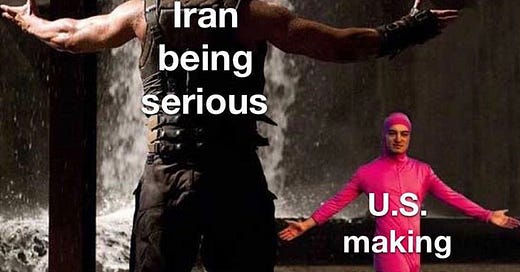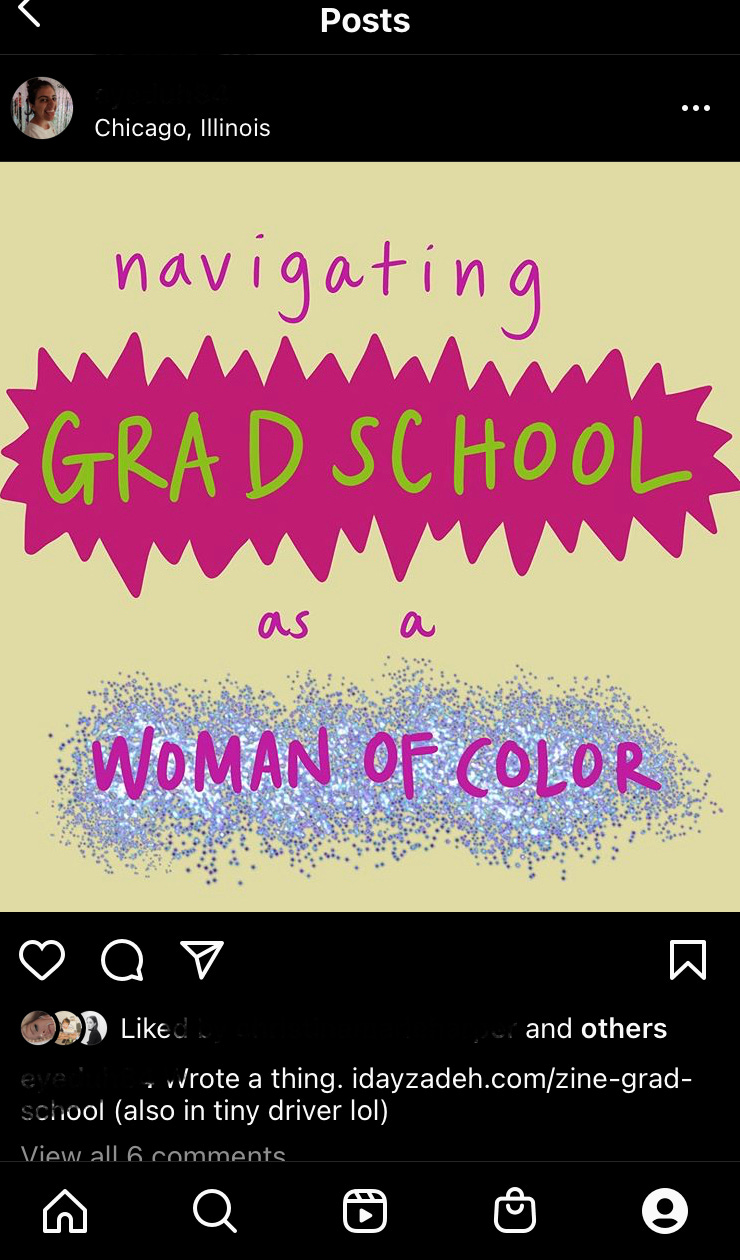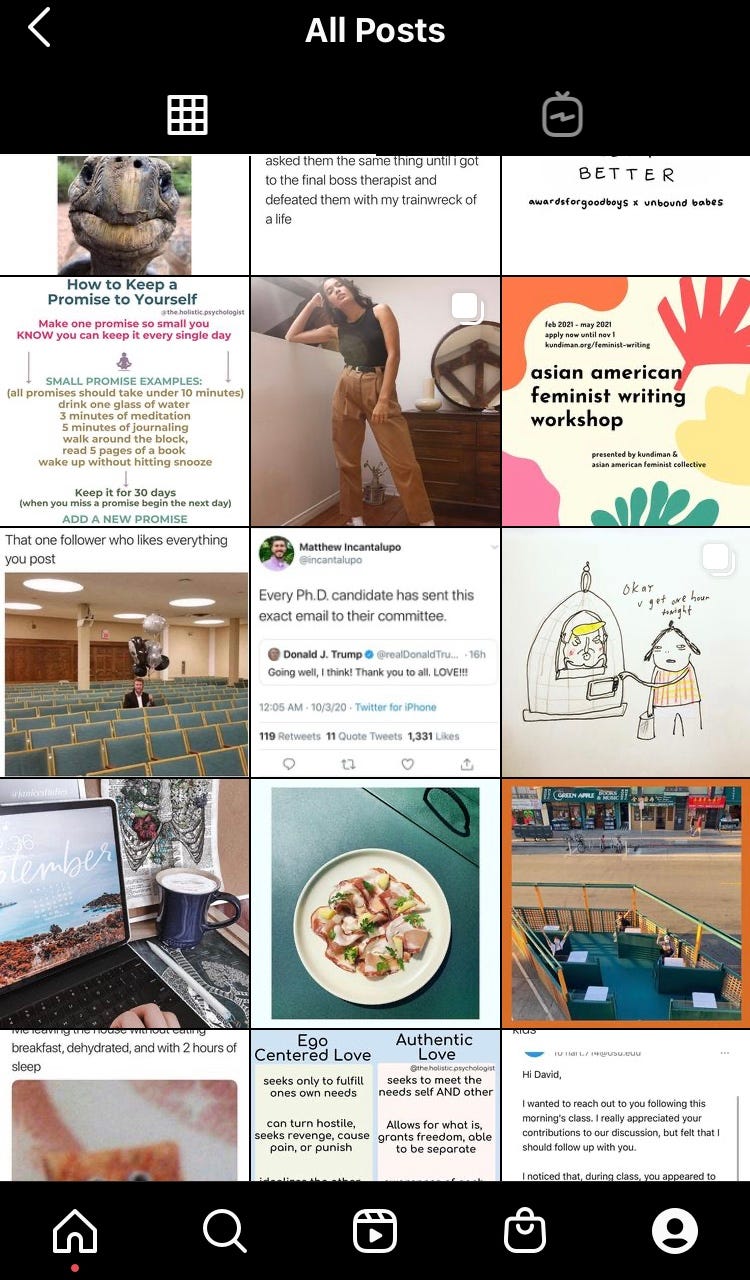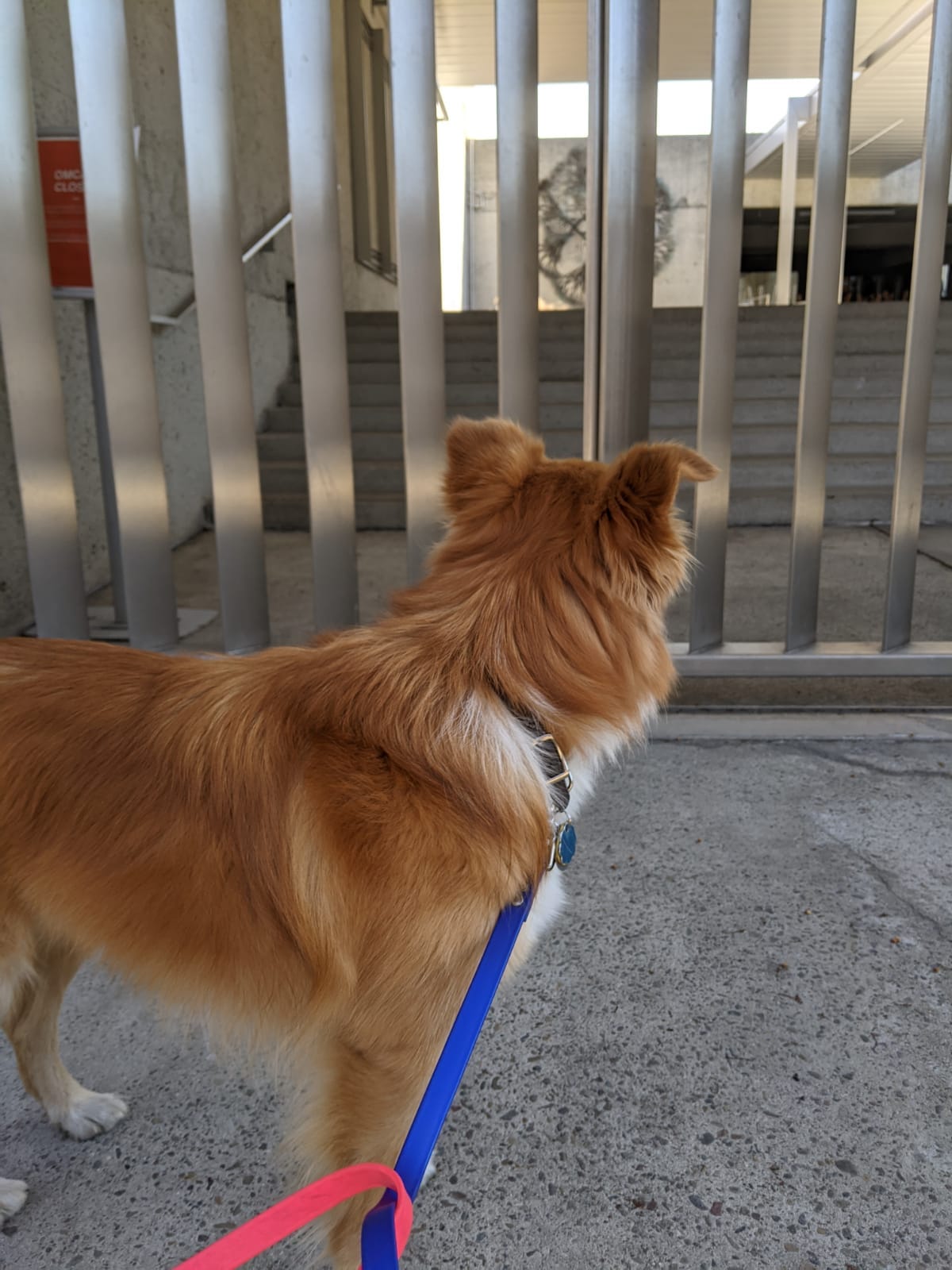Hi there! 👋 I’m Ida, and this is tiny driver, a newsletter about research, pedagogy, culture and their intersections. Thank you for being here. Reply anytime, I love hearing from you.
After an abnormally warm start to the week, things have started cooling down in Chicago. I've broken out my favorite chili recipe (I like to substitute the squash with some canned corn for a little sweetness) and made some French-style country bread to go with it. While I'm sad to see the more comfortable weather go, it's nice to hear the wind outside and know that I am cozy with a cup of tea, sipping the warmth from within the walls of my apartment. ❄️☕
What are some of your winter-time rituals that help make the colder days and longer nights a little more bearable? I'd love to hear about them! 🕯️✨🌨️
I also wanted to leave a link to my latest piece of public writing, this time on Anti-Racism Daily: Rethink What a Professor Looks Like.
Thanks to those of you who have already shared the post. I am deeply grateful! 🥰
What I write.
Last week, I started writing about Instagram as archive or archival practice. In light of reflecting on the questions I posed last week, I have been thinking about the way that I use Instagram day-to-day. It's interesting—on the days that I reach my self-designated "screen limit," it always happens when I'm scrolling through instagram. And yet, the last thing I posted was back in late July with the release of my digital zine:
My "saved" section, however, tells an entirely different story.
The most recent post I have saved from only a day ago. I am obsessed with collecting the things I find interesting or thought-provoking or funny. But I am also invested in collecting posts that I want to think more about, usually because they give me a great deal of pause. And the latter usually comes from meme accounts. Something about the platform—perhaps its ability to have the viewer pause and reflect (unlike TikTok) or its uncanny ability to promote visual stickiness (unlike Twitter)—that makes it such a vivid and disarming place to see internet culture reflected back through the meme. Take this post from last January, for instance, from the meme account “moist buddha.” Even though it feels like it happened years and years ago now, the beginning of the year started off like this:
What does it mean that this meme account, only one day after the killing of Qasem Soleimani, was commenting on US-Iran tensions even when it wasn't over yet?
And what does it mean that these accounts are self-aware enough to post something like the following?:
The two examples I bring up above are still—11 months later—swirling around in my brain, not really latching onto anything meaningful. And looking through those set of memes about Iran, the US and World War III, I am left empty. I wonder if the iterations of the joke (mostly around a bumbling and unintentional US imperial project) are providing anything at all. The only thing I can really think of is that these meme accounts are, in some ways, an archive of (certain) collective affects in very particular contexts.
As a result, I've been thinking about what these accounts say about our collective affect during these times. I mean, the whole idea of memes comes out of this notion of distribution and permutation. The idea that there are images that communicate a particular affect (or emotional performance/structure of feeling) that people can tag different contexts onto through text. These visual feelings and their corresponding taglines are so central to our feelings that they are instantly sharable. Right? That sharing these in DMs or tagging our friends in the comments or posting them to our stories with the caption, "mood," gives us some kind of catharsis to how we're feeling? At least, that's how I’m currently seeing it.
What I consume.
In the Bookshop:
Currently Reading: The Vanishing Half by Brit Bennett
On Deck: Brown Album by Porochista Khakpour
Item(s) of note.

An entire issue of the Journal of Visual Culture dedicated to Internet Memes
A less academic take on the psychology of meme culture and the mechanics of meme theory
A free course (+ syllabus & reading list) on bias in machine learning and AI (heard through Mike Y.)
Reflections from UC Berkeley's Color of New Media working group on their book #identity
A pup-date.
Higgins walked by the Oakland Museum the other day and saw that it was closed because of the pandemic. Although he's sad he won't get to see art, he's happy that people seem to be taking this situation seriously.
As always, thanks so much for reading through, and I'll see you in the next one!
Warmly,
Ida










Glad to see you are baking bread! Let me know if you need a sourdough starter, I can send you my dried one.